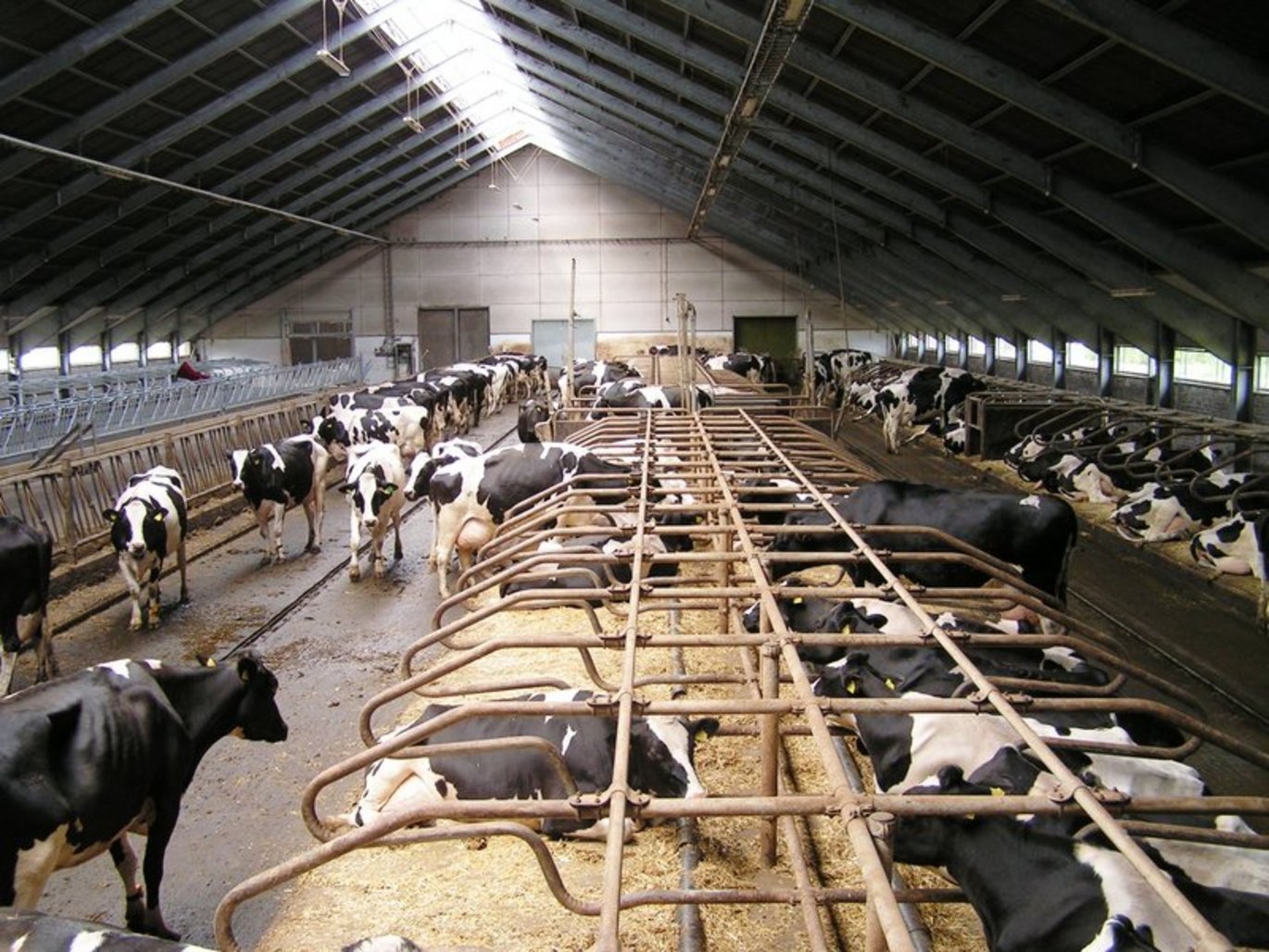Milk, genes and climate in fruitful coexistence
Emissions of harmful methane from cows are to be reduced but with no concurrent loss of milk quantity or quality. Scientists from Aarhus University are exploring the links between milk quality and composition and the genetics and methane emissions of cows.

Several hundred Danish Holstein cows are taking part in a new research project at Aarhus University where they are looking at the interaction in cows between, on the one hand, the milk quality, yield and genetic background, and, on the other, the metagenome (genetic description of a community of microorganisms in a sample taken in a specific environment) and methane emission.
The methane emissions of cows produced during the digestion of feed in the rumen are a considerable burden on the climate and are responsible for an estimated 40-60 per cent of the climate impact of milk in the cow-to-consumer part of the production chain. This impact scientists would like to reduce without compromising milk quality. To do this they will look at the genetics of the cows and relate this to milk composition.
The project will carry out a phenotypic profiling of the milk where the aim is to produce a detailed profile by looking at the composition of fatty acids, proteins, metabolites and the so-called FTIR full-spectrum.
Postdoc Nina Aagaard Poulsen, who is the leader of the project Significance of the metagenome for milk composition and quality, will be coordinating the extensive analyses of hundreds of milk samples.
Better climate profile of dairy products
The scientists also need to carry out a quantitative genetic analysis of the cows in the project where the purpose is to collect milk analysis data and model the interaction between the four predefined parameters in the project: milk quality and composition, metagenome, methane emission and genetic background.
- We expect to be able to identify the groups of microorganisms of particular relevance for milk quality and composition and to chart the correlations between breeding for milk quality and breeding for a reduction in methane emissions. We also expect to improve the evidence for the genetic regions that affect milk composition, explains postdoc Jan Lassen who with research colleagues from Denmark and abroad is carrying out the quantitative genetic analyses.
The project is going to generate valid data for the effect on milk composition and quality of selecting a cow with a low methane emission.
- Knowledge of the genetic relationship between the milk’s profile, the cow’s methane emission and the rumen environment is very inadequately described. We wish to use genetic markers to estimate the genetic relationship between the cow’s milk composition and quality, methane production and microbial profile of the rumen content, says Nina Aagaard Poulsen and elaborates:
- With this project we increase the number of animals from which we have linked data for milk quality and genetic background which will make the genetic markers considerably more robust and easier to use in the future breeding strategy for dairy cattle.
Methane to be reduced
At a time when climate impacts are high on the agenda, it is essential that the project helps to reduce the industry's emissions of the harmful greenhouse gas that methane is. At the same time, the project may form the basis for a transformation of the milk price in the future where farmers are rewarded for having cows with a small carbon footprint.
- The project results can help to lay the foundation for a future milk pricing strategy, and the project is an essential stepping stone for the challenges facing dairies and farmers in the future of ensuring the provision of raw milk of good quality but with minimal climate impact. This will provide added value for farmers and dairies and will also mean that the carbon footprint from cow to consumer of the agricultural and the dairy sector is lowered, says Nina Aagaard Poulsen.
Facts
Project title: ”The importance of the metagenome for milk composition and quality." See webpage (Only available in Danish).
Project period: January 2013 – June 2015.
Project budget: The project has received financial support from the Milk Production Levy Fund and has a total budget of nearly 4.7 million DKK.
Further information
Postdoc Nina Aagaard Poulsen
Department of Food Science, Aarhus University, Denmark
telephone: +45 8715 7997, e-mail: nina.poulsen@agrsci.dk
Postdoc Jan Lassen
Department of Molecular Biology and Genetics
Aarhus University, Denmark
telephone: +45 8715 7936, e-mail: jan.lassen@agrsci.dk
